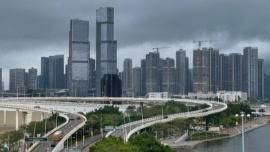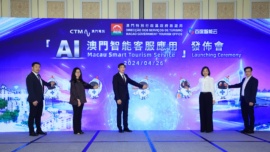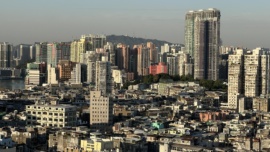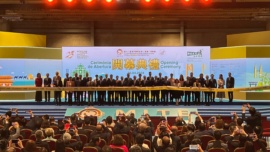Back in 2010 Chui Sai On, then Chief Executive, raised the banner on “Sunshine Governance”: an enlightened administration in which accountability would be king, transparency would be the backbone of civil service, and government officials would pledge allegiance to and embody a clean and efficient public sector. A decade on, one still feels that ‘old habits die hard’, despite some important steps actually taken in that direction. There’s also a sort of path-dependence dynamics that can be traced back to the pre-handover period and perhaps the classic problem of an expectations–capabilities gap coupled with a seemingly elusive web of vested interests.
Macau Business Editorial | July 2020 | By José Carlos Matias – Director

Ho Iat Seng’s initial, unapologetic straightforwardness and talk of public administration reform and accountability boded well for his term. His cabinet’s management of the Covid-19 pandemic deserves kudos and is widely well regarded. Authorities have not only been decisive and transparent but have gained citizens’ trust and confidence with their handling of such an unprecedented and challenging public health crisis.
On a different note, a couple of other recent cases and situations serve as a reminder that, in some situations, transparency might still be a bridge too far.

On his very first day in office, in a bold and welcome move Ho established a new body – the Public Assets Supervision Planning Office, headed by former Secretary for Administration and Justice Sonia Chan – whose mission is to monitor the companies and funds directly or indirectly owned by the government. One of its aims is to promote operational and financial transparency among public-capital firms, meaning that international accounting standards and detailed reporting ought to be required. That however is still not always the case, as was reflected in the simplified and rather puzzling version of the Light Railway Transit Company’s balance sheet made public in the Official Gazette.
Public tenders also serve as a litmus test for the administration’s confidence-building drive, and the recent controversy over the Cinematheque tender has raised eyebrows, with many in the local film sector and other social groups sceptical of the hitherto unknown company that was eventually awarded the contract.
Another case prompting renewed concerns within local civil society relates to the high-rise towers set to mushroom on the foothill beneath the Guia lighthouse. And this is a blast from the past. Over a decade ago amidst controversy over construction of the Calçada do Gaio building – thankfully since suspended – it became clear that sooner or later a couple of land parcels near the Orient Arch on Avenida Rodrigo Rodrigues would be developed, and that they would further obscure the already hemmed-in Guia Lighthouse, a UNESCO-listed World Heritage Site. The lenient height limit (90 metres) determined for the area by the Government in 2008 was a missed opportunity and an unfortunate decision, one that hurt the feelings of local residents who treasure the city’s urban landscape and who rightly believe that heritage protection does not end with conserving the sites themselves – something the SAR authorities have been doing quite successfully – but also entails ensuring that buffer zones and adjacent areas around the sites are not jeopardized by mammoth-scale projects.

Scarcity of land is surely an issue, and property developers need more space to rekindle the city’s construction and real estate industry. But that need not and ought not be disproportionally at the expense of Macau’s priceless, historic heritage vistas. There is still time for the Government and developers to make the necessary adjustments, reaching a mutually beneficial agreement to lessen these projects’ visual impact.
Shortage of land will soon be eased by the new urban zones reclaimed from the sea. Development of the six new artificial land areas offers the city an opportunity to strike the right balance between public and private housing and social and transportation infrastructure, to promote economic diversification and truly shape this city as it emerges from the current decade into a world-class, people-oriented, business-friendly urban space, well integrated into the Greater Bay Area. It’s about time Macau got urban planning right. The long-deferred Urban Master Plan can be kept on the back burner no longer.
The way forward? Further engaging professionals and citizens in paving the way for a successful, inclusive and environmentally friendly urban area, without the back-room deals, delays and continual budget overruns that have plagued the city’s healthy urban development in the past.
One expects that lessons have been learned and that, guided by a strong commitment to efficiency and transparency, the authorities will light the way to the city’s bright future.
























